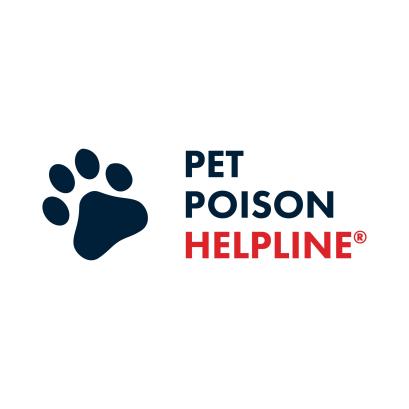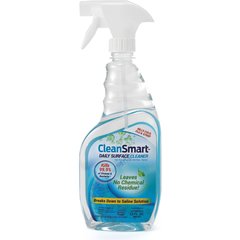Spring Cleaning: 5 Household Cleaners to Avoid Near Dogs
JasonDoiy/iStock / Getty Images Plus via Getty Images
As spring cleaning season approaches, you may be using new types of household cleaners or using them more frequently. If you have a curious dog, there is always the potential risk they will get into toxic household cleaners.
While not all household cleaners are dangerous to dogs, it’s important to know which ingredients are toxic and what to do if your dog accidentally ingests a household cleaner toxin.
Spring Cleaning Dog Safety
For many types of household cleaners, there are pet-safe options. However, there are certain types of cleaners that offer no pet-friendly alternatives.
Be mindful of what products you have in your home and how to use them in a manner that’s as pet-safe as possible. This may include preventing your pet from having access until the product has dried, or washing/wiping all residue away before your pet has access to the freshly cleaned area. If there is a pet-friendly option that fits your cleaning needs, that is the best product to choose.
How Do Dogs Accidentally Ingest Household Product Cleaners?
If your dog is exposed to a cleaning product, it could be from:
- Licking the product from the surface it was applied to
- Walking through the cleaning product and then licking if off their feet
- Being sprayed with the product
- Chewing the cleaning product container
Many times, these exposures are either directly witnessed or there’s evidence afterward of the exposure, such as a chewed bottle. Sometimes an exposure is not obvious if a dog had unsupervised access to an area where the cleaning product was left behind.
Typically, the clinical signs of exposure are related to what part of your dog’s body the cleaning product was in contact with, such as if it were inhaled, splashed in the eyes, licked, or ingested. Toxic signs can start within minutes of exposure or may be delayed up to a day after exposure.
If there’s a chance your dog was exposed to a cleaning product, the safest plan is to consult your veterinarian or the Pet Poison Helpline (855-764-7661). These resources can help determine the potential concerns and provide you with recommendations and next steps, if necessary.
5 Household Cleaners Toxic to Dogs
The following common household cleaners pose a great risk to dogs if ingested or absorbed.
1. Laundry Detergents
Laundry detergents can cause gastrointestinal upset and irritation as well as pose a risk for aspiration pneumonia if ingested. Always store your laundry detergent in an area high enough or secure enough that your dog doesn’t find it.
2. Disinfectant Cleaners
Though there are a wide variety of disinfectant products, they all pose a risk for affecting the eyes, skin, and gastrointestinal tract. This could result in symptoms varying from mild irritation to development of ulcers. There are many all-surface cleaners that are available in pet-safe formulations to use instead.
3. Drain Cleaners (Drain Opener/Clog Remover)
Due to their ability to break down many different materials, drain cleaners pose a high risk of damaging any tissue they contact, including the eyes, skin, mouth, esophagus, and stomach. Keep drain cleaners in a secure location away from a dog’s access.
4. Bleach-Based Cleaner
Bleach-based cleaners come in a variety of different concentrations, but all pose a risk for gastrointestinal irritation, stomach upset, and possibly ulcers to a dog’s gastrointestinal tract. If you regularly use bleach, ensure these products are securely out of reach from your dog. Additionally, do not let your pup enter any room where bleach was used, the area is still wet, or still has a strong bleach odor.
5. Oven Cleaners
Oven cleaners are used to break down burnt, adhered food residues, which means their toughness can be damaging to all tissue types including the eyes, lungs, skin, mouth, esophagus, and stomach. This results in potentially severe injury with ingestion, inhalation, and exposure to the skin. Keep oven cleaners in a secure location, and ensure your dog doesn’t have access to the kitchen after an oven cleaner is used until the odor has cleared and the product has been safely stored.
Signs of Household Cleaner Poisoning in Dogs
- Coughing or difficulty breathing
- Red or watery eyes
- Skin redness or irritation
- Drooling
- Vomiting
- Reluctance to eat
- Abdominal pain
- Weakness or incoordination
- Lethargy
Sometimes an exposure is not obvious if a dog had unsupervised access to an area where the cleaning product was left behind.
What To Do If Your Dog Accidentally Ingests a Toxic Household Cleaner
Contact the Pet Poison Helpline or your veterinarian if you believe your dog ingested a toxic household cleaner. Steps you can take immediately include:
-
Contacting the Pet Poison Helpline or your veterinarian.
-
Removing your dog from the area to prevent additional exposure.
-
Offering a small amount of water to drink (but do not force your pet to drink if they are not interested).
-
Wiping or bathing any residual product from your pet’s lips, skin, and fur.
-
Keeping the cleaning product bottle/package on hand to provide information.
Do not induce vomiting unless instructed to do so by a veterinarian or the Pet Poison Helpline.
Pet-Safe Household Cleaners
If you want to switch to a pet-safe cleaning product, below we offer our favorite dog-safe house cleaning products:
CleanSmart® Daily Surface Cleaner
This everyday surface cleaner is pet-safe for those dogs that love licking everything. It’s an organic spray that kills 99.9% of bacteria and germs, and it’s made from all-natural ingredients.
TriNova® Natural Multisurface Cleaner
An additional all-purpose cleaner that can be used throughout the house. Ingredients are all-natural and it provides a safe option for dogs that love helping you with chores.
Frisco® Cleaning Wipes
If you rely on disposable cleaning wipes, these pet-safe wipes are free from harsh chemicals and ideal for cleaning dog toys, surfaces, and bowls.
Aunt Fannie’s® Distilled White Vinegar Cleaner
This vinegar-based cleaning solution is pet-approved for cleaning bathroom and kitchen floors.
Always double-check your household cleaners before using them near your pets. If you believe your dog may have ingested any type of chemical toxin, contact the Pet Poison Helpline or your veterinarian to determine next steps.


